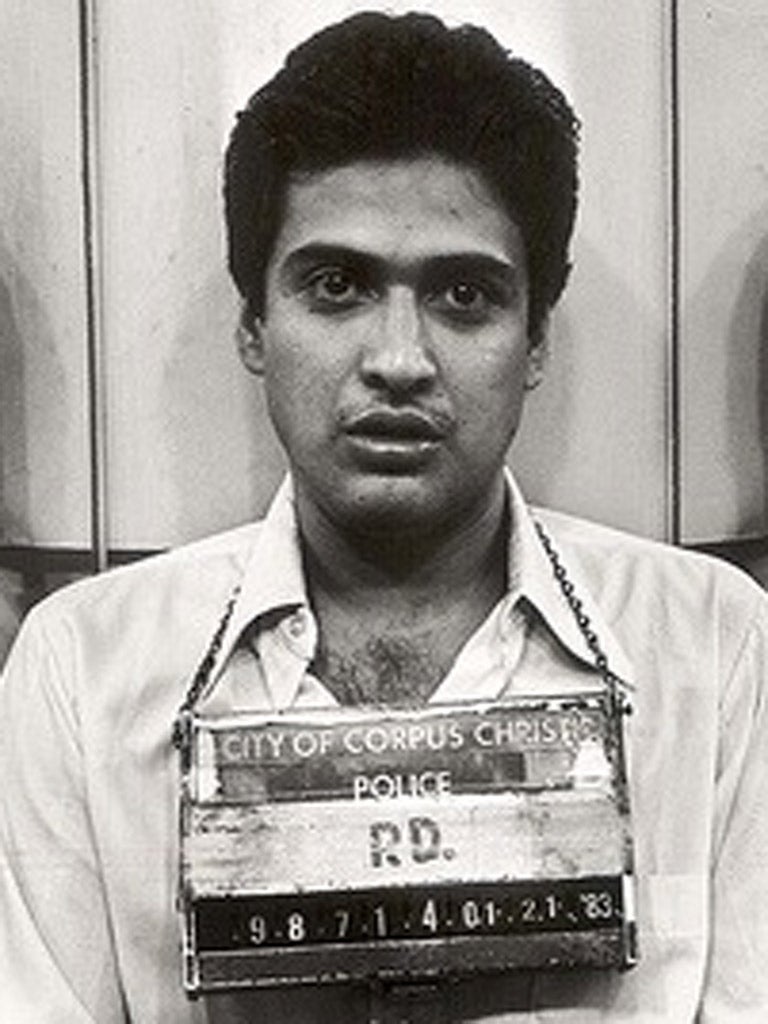Texas executed innocent man, claims report on Carlos de Luna
Authoritative study concludes Carlos de Luna was wrongly given lethal injection over 1989 killing

A team from Columbia University law school has published evidence seeking to prove that Texas sent an innocent man to the execution chamber in 1989 for allegedly stabbing a petrol station cashier thanks to a combination of shoddy police work and general "nonchalance" in the handling of the case.
The unprecedented study, which at 436 pages takes up the entirety of the latest issue of the school's Human Rights Law Review, may stand as the most powerful rebuttal ever made to the notion that only the guilty make it to Death Row in America and ultimately to the ministrations of the executioner.
Under the supervision of Professor James Liebman, 12 students spent six years retracing the case of Carlos de Luna, a Latino convicted for the stabbing death of a single mother on the night shift of a petrol station in Corpus Christi, Texas, on the night of 4 February 1983. De Luna, who was executed six years later in 1989, was found by police hiding under a pick-up truck shortly after the killing and arrested.
Called "Los Tocayos Carlos: An Anatomy of a Wrongful Execution", the report offers a narrative of De Luna's journey from that night to the death chamber. Throughout, he not only proclaimed his innocence but insisted that a different Carlos, his friend and namesake (or tocayo in Spanish), Carlos Hernandez, was the killer. "I would say that, across the board, there was nonchalance," Professor Liebman told The Huffington Post yesterday. "It looked like a common case, but we found that there was a very serious claim of innocence."
At his trial, the prosecution said Mr Hernandez was a figment of the defendant's imagination. Yet the students found that detectives in Corpus Christi were familiar with Mr Hernandez who had a long history of violence and was known to carry a knife of the kind used in the petrol-station murder. Worse still, Mr Hernandez himself was later to boast of killing the woman.
Other problems included an absence of blood on De Luna's clothing when he was arrested in spite of blood widely spattering the crime scene. No testing was done on the blood and flesh on the knife and nothing was taken from the nails of the victim to try to identify the assailant.
Unusually for a capital case, moreover, the guilty conviction was delivered almost entirely on the basis of eye-witness accounts. Yet the Columbia team said testimony from two witnesses at the crime scene that night is contradictory; one was to admit he had trouble telling one Latino from another.
The Columbia report is a reproach to Texas which has killed 482 prisoners since the US Supreme Court lifted a moratorium on executions 40 years ago – more than any other state. In 2005, the Supreme Court Justice Antonin Scalia asserted there had not been "a single case in which it is clear that a person was executed for a crime he did not commit. If such an event had occurred... the innocent's name would be shouted from the rooftops." The study by Professor Liebman may come closer than any before it to demonstrate he was wrong.
Join our commenting forum
Join thought-provoking conversations, follow other Independent readers and see their replies
Comments
Bookmark popover
Removed from bookmarks